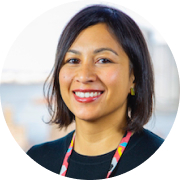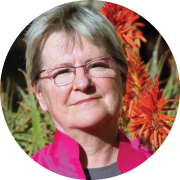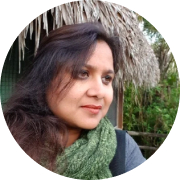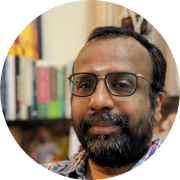The Group
Overview
The group comprised two archeologists, two historians, a professor of social work, a musician and arts manager, a linguist and a literary scholar. The group met monthly initially discussing common themes amongst the group and exploring intersections amongst their work.
I am fascinated by how peoples’ natural environment and cultural history are encoded in the grammar and lexicon of their languages. My research also looks at how social relations are created and recreated through language use. I have been researching how these issues playout in the multiethnic uplands of mainland Southeast Asia, with a particular focus on the Laos-China-Vietnam border areas.
View more
Many of these languages are spoken by small ethnicgroups facing pressures from environmental change, access to national social institutions,the integration of regional economies, and most importantly, the rapid transformation oflivelihood systems. My local mentors are teaching me how onomatopoeic and expressivewords depict their interactions with the forest, drawingon sound symbolism, soundplayand a special grammar of ideophony.
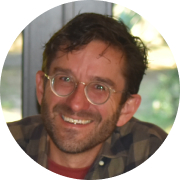
Simon Connor
Simon Connor is a researcher in the Archaeology and Natural History unit at the Australian National University. His research concerns interactions between ancient cultures and ecosystems, using Paleoecology approaches to investigate past human imprints on today’s landscapes. He has worked in the Caucasus region, Balkans,Iberian Peninsula, Azores Islands, Southern Africa and various parts of Australia.
View more
He is very interested in exploring the intersections between the humanities and sciences, as well as in the communication of research findings to local communities.
Saarah Jappie is Senior Program Officer for the Mellon Mays Graduate Initiative Program (MMGIP) and the Transregional Collaboratory on the Indian Ocean. Trained formally in history, her research interests lie in interdisciplinary approaches to histories of the Indian Ocean world with a focus on cultural mobilities across Southeast Asia and Southern Africa.
View more
Saarah has studied and worked in Australia, South Africa, the United States, Indonesia, and Jordan. She holds an MA and PhD in history from Princeton University, an MA in historical studies from the University of Cape Town, and a Bachelor of International Studies (Languages) from the University of New South Wales. Her publications include the co-authored book Ocean as Method: Thinking with the Maritime (Routledge, 2022), among other texts. Saarah is an associate member of the Oceanic Humanities for the Global South Initiative, a research associate of the Visual Identities in Art and Design research centre (VIAD) at the University of Johannesburg, and a research scholar in Africana Studies at Barnard College(2022-23). Prior to joining the Council, she lectured in histories of the Global South at the University of the Witwatersrand, Johannesburg.
Isabel Hofmeyr is Professor Emeritus at the University of the Witwatersrand, Johannesburg and was Global Distinguished Professor at New York University from 2013 to 2022. She has worked extensively on the Indian Ocean world and oceanic themes more generally.
View more
Recent publications include Dockside Reading: Hydrocolonialism and the Custom House (2022) and a co-edited special issue on “Reading for Water” (2022). She co-directs a project Oceanic Humanities for the Global South with partners from Mozambique, India, Jamaica and Barbados.
Rufus Maculuve is musician, researcher and arts manager. This self-taught musician, is one of the founding members of the acclaimed Mozambican band Kapa Dech. As one of the band’s keyboard players, he has recorded and composed songs. His works include soundtracks for a number of Mozambican films: A Ponte and Night Stop directed by Licínio de Azevedo, A Bola directed by Orlando Mesquita and I Love You directed by Rogério Manjate.
View more
He is a co-founder and researcher of Kaleidoscopio – Research in Public Policy and Culture, which explores and documents elements of tangible and intangible culture, through sound (acoustic ecology), focusing on the soundscapes of the Indian Ocean, where he has worked with performing groups and fishing communities, on the Mozambique Island. He also researches creative industries, where he has just finished a research project on artistic freedom in Mozambique, though the Mozambican Federation of Cultural and Creative Industries, in partnership with the Pan African Network for Artistic Freedom.
As an arts manager, he has worked with a several local and international programs, as a leader, such as Music Crossroads Mozambique (Executive Director), Umoja CFC (International Coordinator), Music Bridges (Coordinator) and currently at Ntsindya – Maputo Municipality Cultural Centre (Director).
Mussa Raja is a Lecturer and Researcher Assistant in the Eduardo Mondlane University where he has been a faculty member since 2010. Raja hold a PhD and MA in Archaeology at University of Algarve and BA in History at Eduardo Mondlane University. Mussa Raja is director of the Archeology and Cultural Heritage Management Course and is one of the few young archaeologists dedicated to studies of ancient environments.
View more
He has been lecturing Archeology and African Prehistory for 11 years and has extensive experience in archaeological research dating back to 2005. Raja, in addition to experience in archaeological research, since 2009 has dedicated more attention in parallel to extension in development projects, especially in the Extractive Industry, in the environmental and archaeological compliance component. Raja he has contributed as a team member to the establishment of the Metangula Museum under the Ambassador’s Fund for Cultural Preservation between 2007 and 2008.
His research interests lie in the area of Paleoenvironment and Climate Changes, to understand how it contributes to shape landscape and human behaviour during the Late Pleistocene and Holocene in Southern Africa and how the modern human influenced the changing and site formation, ranging from present to past. He has collaborated actively with researchers in several other disciplines about Stone Age period and human evolution; Paleoecology and Paleoenvironment in Tropical ecosystems.
He also is interested on understanding climate change in a historical period which linked to the effects and against human activities along the Indian Coast of Africa, especially in the coastal areas of the South and North of Mozambique.
Raja has extensive experience in collaboration with cross-border scientific research projects, having carried out, in Portugal, in the Algarve, Tejo region, studies together with the Interdisciplinary Center for Archeology and Human Evolution (ICArEHB – Portugal) and collaborated with several projects on Human Evolution in the Rift Valley region (Tanzania and Kenya) and Gorongosa National Park in the Primates and Paleontology project coordinated by the Oxford University team, England. Raja is currently the Principal Researcher of the STICAH Project (Long-term Agroecological Histories of Small Tropical Island Complexes of the Indian Ocean World) funded by the Social Science Research Council’s Transregional Collaboratory, and senior transdisciplinary researcher “DIASPORA: First human migrations and the Valley of the Nile: the Kerma region during the Middle Stone Age” in Sudan, funded by the Portuguese Foundation for Science (FCT), Portugal; and with the InMoz Project – Quaternary Environmental Change in Inhambane, south-east Mozambique, and its role in human evolution, funded by the Foundation for Science (FCT).
He has published a dozen of articles related to archeology and paleoenvironments, and he has been participating in International Conferences. He is a member of the following international scientific associations: ESHE-European Society for the study of Human Evolution; SAA – Society for American Archeology.
Dr. Bina Sengar is Associate Professor, Department of History and Ancient Indian Culture (Since 4th January, 2010) of Faculty of Social Science, Dr. Babasaheb Ambedkar Marathwada University, Auranagabad, Maharashtra, India. She did her Ph.D. in 2005 on ‘Role of Gandhians and Social Transformation of Gujarat Tribes; 1920-1960’, since then she is assiduously working on thematic lines of Indigeneity, indigenous knowledge systems, indigenous displacement, and mobility.
View more
She was Fulbright Fellow, FNAPE from 1st Sep, 2018-31st May, 2019 at ‘Global Indigenous Forum’ Department of Global and Socio-Cultural Studies, Florida International University, Miami. She is developing a research based scholarly network where scholars engage in academic research related to ‘indigenous and rural communities’ history in South Asia’ through the journal ‘Rural South Asian Studies’ in which she is founding editor www.ruralsouthasia.org.
Sunil D. Santha is Professor and Chairperson at the Centre for Livelihoods and Social Innovation in the School of Social Work, Tata Institute of Social Sciences, India. He commenced his career with strong grassroots-level work towards strengthening local institutions in managing common property resources. He recognises the strengths of indigenous knowledge systems and cultural practices in sustaining people’s eco-social worlds.
View more
His rich field experience in small-scale fisheries, agriculture, and rural development has also shaped his expertise in blending the political ecology of development discourses with social innovation and social work practice in a more-than-human world.
As an academic with keen interests in environmental risks, climate justice, and livelihood uncertainties, Sunil strives to understand the role of social institutions and participatory action in reducing vulnerabilities and strengthening just adaptation practices. He believes in action research and reflective practice towards innovating participatory methods of entrepreneurial action and emergent livelihoods. At the Centre for Livelihoods and Social Innovation, Sunil developed the Adaptive Innovation Model. Adaptive innovation strives towards designing people-centred adaptation strategies that will have the intent and effect of our decisions and actions on the structures and processes shaping equality and justice, care, and empowerment for those disadvantaged and vulnerable in society. Therefore, such an approach involves not only strengthening the adaptive capacities of vulnerable groups but also deconstructing certain dominant narratives linked to sustainable livelihoods and climate change adaptation. His recent book Climate Change and Adaptive Innovation: A Model for Social Work Practice has evolved from these ideas, experiences, and learning. His forthcoming book Climate Change, Small-Scale Fisheries, and Blue Justice: Fishscapes and Alternative Worldviews will be shortly published by Routledge.
Guest speakers

Anna Tsing
Distinguished Professor, Anthropology, University of California, Santa Cruz; and Professor, Aarhus University

FeiFei Zhou
Architect, artist and researcher, Cornell AAP

Field Guides and Feral Atlas, 24 June 2022
Professor Anna Tsing and Feifei Zhou, collaborators on the groundbreaking digital resource, Feral Atlas, met with the group to discuss the fragility of archives, collaborative curation, and reading the landscape. Group members also had the privilege of reading a draft manuscript stemming from the broader Feral Atlas project, which sparked conversation around the work of scale in understanding more-than-human worlds, and the power of storytelling, among other subjects.

Radhika Subramaniam
Associate Professor of Visual Culture at the New School
Seedy Politics, 2 December 2022
What worlds can the miniature reveal, when studied carefully? How far can metaphor take us as a lens of exploration? The group explored these questions with Professor Subramaniam in discussion around her essay, “Notes for a Seedy Politics”. The essay appears in the newly-published collection, Maria Thereza Alves: Seeds of Change (Amherst College Press and the Vera List Center for Art and Politics, The New School, April 2023) and provided group members with a masterful example of “exploding a metaphor” as a way to reveal the sociocultural worlds of material objects.

Tamara Fernando
Assistant Professor, Stony Brook University
Seeing like the Sea, 3 March 2023
Professor Fernando is pioneering “history below the water line” approaches through a trans-national account of the pearling industry across the northern Indian Ocean. She met with the group to discuss her article “Seeing like the Sea: Multispecies History of the Ceylon Pearl Fishery 1800–1925” which advances a multi-species reading of the pearling industry in colonial Sri Lanka. As she asks, “how did the reef and oysters experience colonialism, slavery or changes in imperial governance?”.

